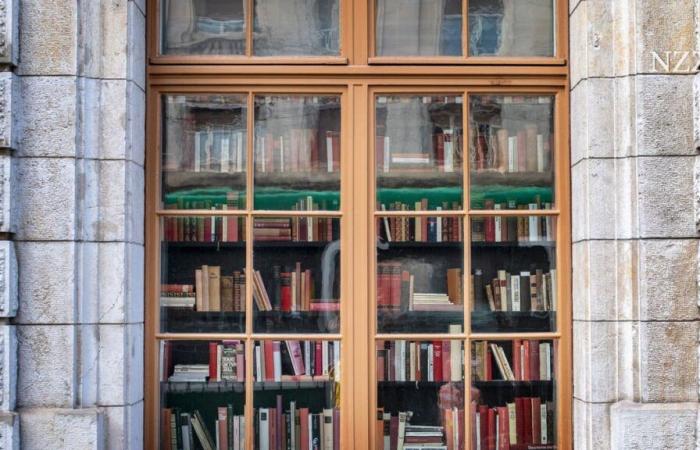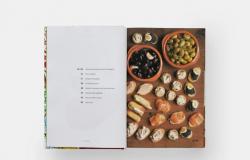The Swiss Book Prize will be awarded today. But not all authors want to take part in this “circus”. Maybe the ego would be bruised.
A bookcase in a window, photographed on Monday, July 22, 2024, at Basel train station.
Christian Beutler / Keystone
The nerves are on edge. Three male and female authors will be sitting on pins and needles at the Basel Theater this afternoon, waiting to see which name will come up. One or one of them will win the Swiss Book Prize, the other four will not. Will it be Zora del Buono, who is considered the favorite? Martin R. Dean with his multi-layered book of memories? Or Michelle Steinbeck and her fast-paced revenge crime thriller? Maybe also Mariann Bühler’s fabulous literary debut? With Béla Rothenbühler finally a dialect author?
It is a highly competitive situation. In the moment of disappointment, your nerves can get the best of you. This recently happened to Clemens Meyer. He was nominated for the German Book Prize. When it was announced that Martina Hefter would receive the award, Meyer shouted that it was a disgrace for literature that his book did not receive the prize and rushed out of the hall to rant to himself outside. Meyer’s novel “The Projectors” really deserved the book prize (NZZaS from October 12, 24). But one of the rules of the game for such prizes is that the jury’s decision always depends on the constellation and is ultimately unpredictable.
The fact that Clemens Meyer was so upset is human and refreshing: it is difficult not to take the decision to read another book personally. Alain Claude Sulzer, who was twice nominated for the Swiss Book Prize without receiving it, also openly acknowledged his disappointment. In this newspaper in 2022 he explained why he wanted to avoid the humiliation in the future and no longer take part in the race. It was not possible for him to be happy with the winner. Alex Capus also writes: “I don’t like being a circus horse.” In “Books on Sunday” he explained why he doesn’t apply for prizes: He doesn’t like literary competitions. How can one compare such different works with one another? “Literature is not an Olympic discipline.”
One may criticize the fact that a book prize nomination with a shortlist, reading tour and rolling cameras is a “circus”, as Capus writes. But it is this hype that brings the writers closer to the audience. As a renowned and successful author, Alex Capus has no need for this circus. His books also end up on bestseller lists. But many other authors receive little attention and very few can make a living from writing. For them, the nomination represents an opportunity in the form of performance opportunities and reporting. And therefore more books sold.
The special thing about the so-called book price is its close, even institutional, connection with the book trade. Nothing catapults sales as much as the German Book Prize (that’s why Clemens Meyer really wanted it). The novel by the current award winner Martina Hefter has now climbed to second place on the “Spiegel” bestseller list. According to Klett-Cotta-Verlag, 1,500 to 3,000 copies are sold every day, with a total of 130,000 so far and the trend is rising. The Swiss book price cannot keep up with these dimensions; But here too, award-winning and often nominated books become bestsellers.
If a shortlist and shared readings suggest a sense of competition, this may feel uncomfortable for authors. Losing hurts some egos. But it is a classic case of the principle do ut des: You have to do something to get attention and appreciation. A shortlist is not at all unpleasant for readers. The jury selection meets their need for orientation and represents literary quality.
It’s just a shame that the book price is limited to narrative prose and excludes other, innovative genres such as essays, graphic novels or poetry. For example, Eva Maria Leuenberger’s outstanding long poem “The Spider” fell through the cracks. Literature escapes the logic of competition. And if you look at it less athletically, you could also say: everyone on the shortlist has already won.
The journalist herself was a member of the jury for the Swiss Book Prize in 2022.
Click here for the reviews of the books nominated for the Swiss Book Prize.






